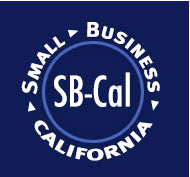Here is additional Information on the Small Business Jobs Act:
Elimination of Advanced EITC. Presently, low- and moderate-income individuals may qualify for a refundable earned income tax credit (EITC). Individuals have the option of requesting advanced payments of the EITC throughout the year by having their payments of withheld income reduced by their employer. The advanced EITC payment option, however, is not popular and only about three percent of eligible EITC recipients choose this option. The substitute eliminates the advanced EITC payment option. The provision is estimated to raise $1.131 billion over 10 years.
Addition of Small Business Lending Fund. The substitute authorizes the creation of the Small Business Lending Fund to provide Treasury with the ability to purchase preferred stock and other debt instruments from eligible financial institutions with less than $10 billion in total assets. Eligible institutions include insured depositories, bank and savings and loan holding companies, and certain community development loan funds. Eligible institutions with less than $1 billion in total assets can apply to receive investments of up to five percent of their risk-weighted assets. Eligible institutions between $1 billion and $10 billion in total assets can receive investments of up to three percent of risk-weighted assets. Participating institutions will pay a five percent dividend rate on the preferred stock, but this rate can be reduced to as low as one percent if a bank demonstrates a 10 percent increase in small business lending relative to a baseline set using the four quarters prior to enactment. The dividend rate is increased to seven percent after two years, if the bank does not increase its small business lending. To encourage timely repayment, the rate increases to nine percent after four and a half years. Treasury’s authority to make capital investments under the program is terminated one year after the date of enactment. This provision is estimated to raise $1.1 billion over ten years.
Addition of the Export Promotion Act. The substitute would assist U.S. small and mid-sized businesses that are looking to export their products but do not have the resources or know-how to find new international customers. First, it increases the activities and staffing of the Department of Commerce in carrying out its mission to promote U.S. exports. Second, it authorizes increased funding for export grants available to industry associations and non-profit institutions. Finally, the amendment requires that decisions to fund manufacturing and innovation grants include exporting potential as one of the application considerations. Based on estimates provided by the Department of Commerce, this legislation is projected to create over 43,000 jobs once the funds are appropriated. This change has no cost associated with it.
Addition of Agriculture Disaster Relief. The substitute would provide assistance for 2009 agricultural losses for crops, including specialty crops, livestock, sugar, aquaculture, cottonseed, and poultry. In addition to approximately $1 billion in supplemental direct payments to producers with a minimum five percent loss in production, the bill would provide $42 million in cottonseed assistance, $25 million in aquaculture assistance, $21 million to a Hawaiian sugar cane cooperative, $75 million to poultry producers, $50 million for livestock producers, and $300 million for specialty crop producers. The program is designed for payments to be issued quickly through USDA and State block grants. States may continue to receive Conservation Reserve Program payments for the purposes of school funding. This provision is estimated to cost $1.4 79 billion over ten years.
Addition of a Provision to Reallocate Future Spending. The substitute reallocates $500 million of future spending allotted in the Recovery Act and returns Supplemental Nutrition Assistance Program (SNAP), or food stamps, benefits to the levels that individuals would have received in 2017 under pre-Recovery Act law, effective August 31, 2017. This modification reduces the cost of the bill by $500 million over ten years.
Use of Predictive Modeling and Other Analytics Technologies to Identify and Prevent Waste, Fraud and Abuse in the Medicare Fee-for Service Program. The substitute would require the Secretary to contract with private companies to conduct predictive modeling and other analytics technologies to identify and prevent payment of improper claims submitted under Parts A and B of Medicare. The Secretary would be required to identify the ten states that have the highest risk of waste, fraud and abuse in the Medicare program, and for one year, predictive modeling and other analytics technologies would be used to identify and stop fraudulent claims in these states. After this initial year, the Inspector General of the Department of HHS (HHS OIG) would report to Congress on the actual savings to the Medicare fee-for-service during the preceding year, projected future savings to the program as a result of the use of these technologies, and the return on investments as a result of the predictive analytics technologies. The Secretary would be required to report to Congress on the effect, if any, the technologies have on Medicare beneficiaries and providers. If the HHS OIG certifies more than nominal savings from the use of the technology, its use would be expanded to ten additional states for another year. After the second year of use, the Secretary and the HHS OIG, would conduct a second analysis and certification. If this analysis and certification are positive, the technologies would be expanded to the Medicare fee-forservice program in every state for an additional year. Finally, after that additional year, a third analysis would be conducted, and if positive, the Secretary would expand the use of the technologies to Medicaid and the Children’s Health Insurance Program (CHIP). If during any evaluation and certification, the HHS OIG does not certify savings, a moratorium would be imposed on the expansion of the technologies for one year. This change increases the cost of the bill by $930 million over ten years.
Scott Hauge
President
Small Business California
2311 Taraval Street
San Francisco, CA 94116
shauge@cal-insure.com
415-680-2188
Subscribe to:
Post Comments (Atom)



No comments:
Post a Comment